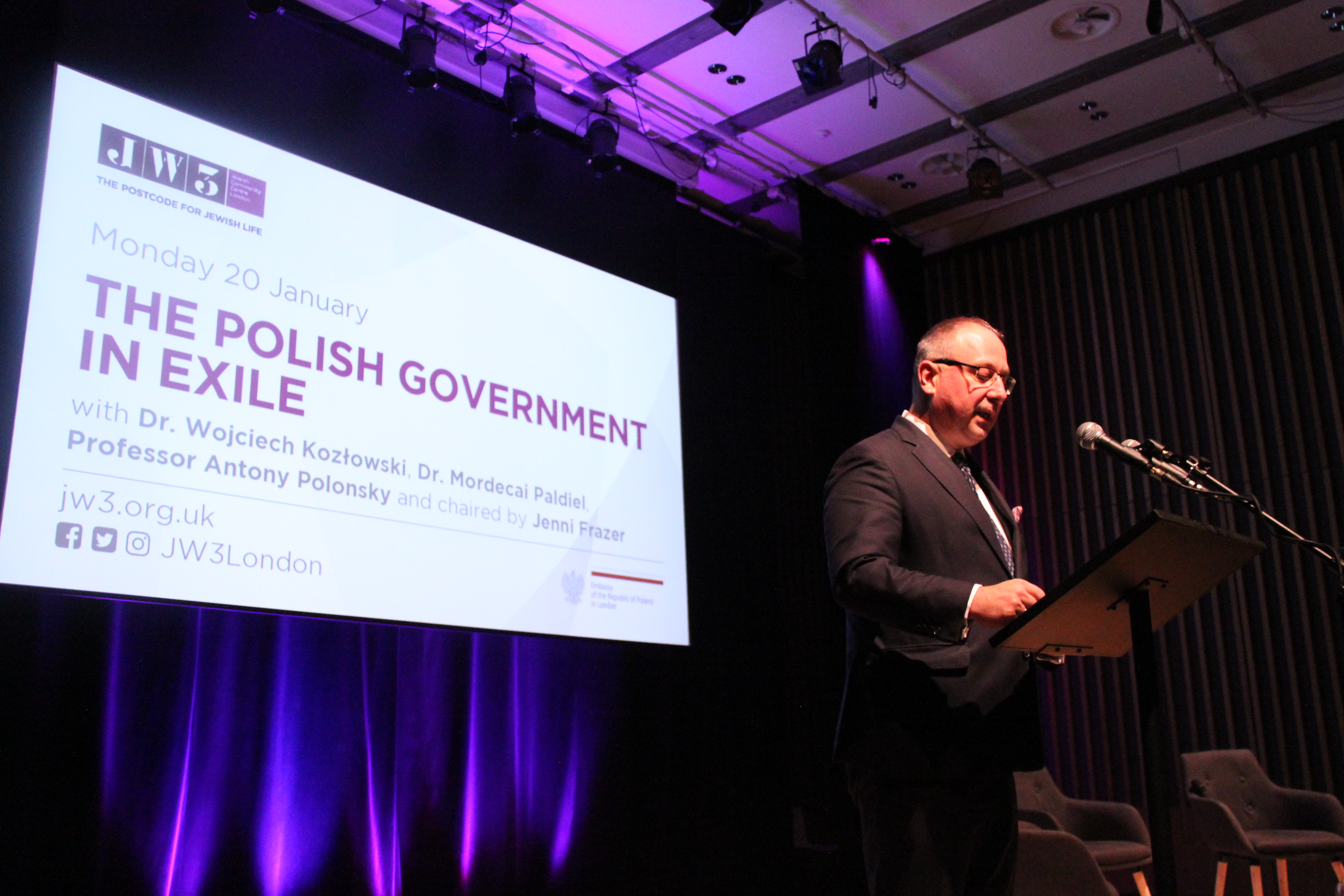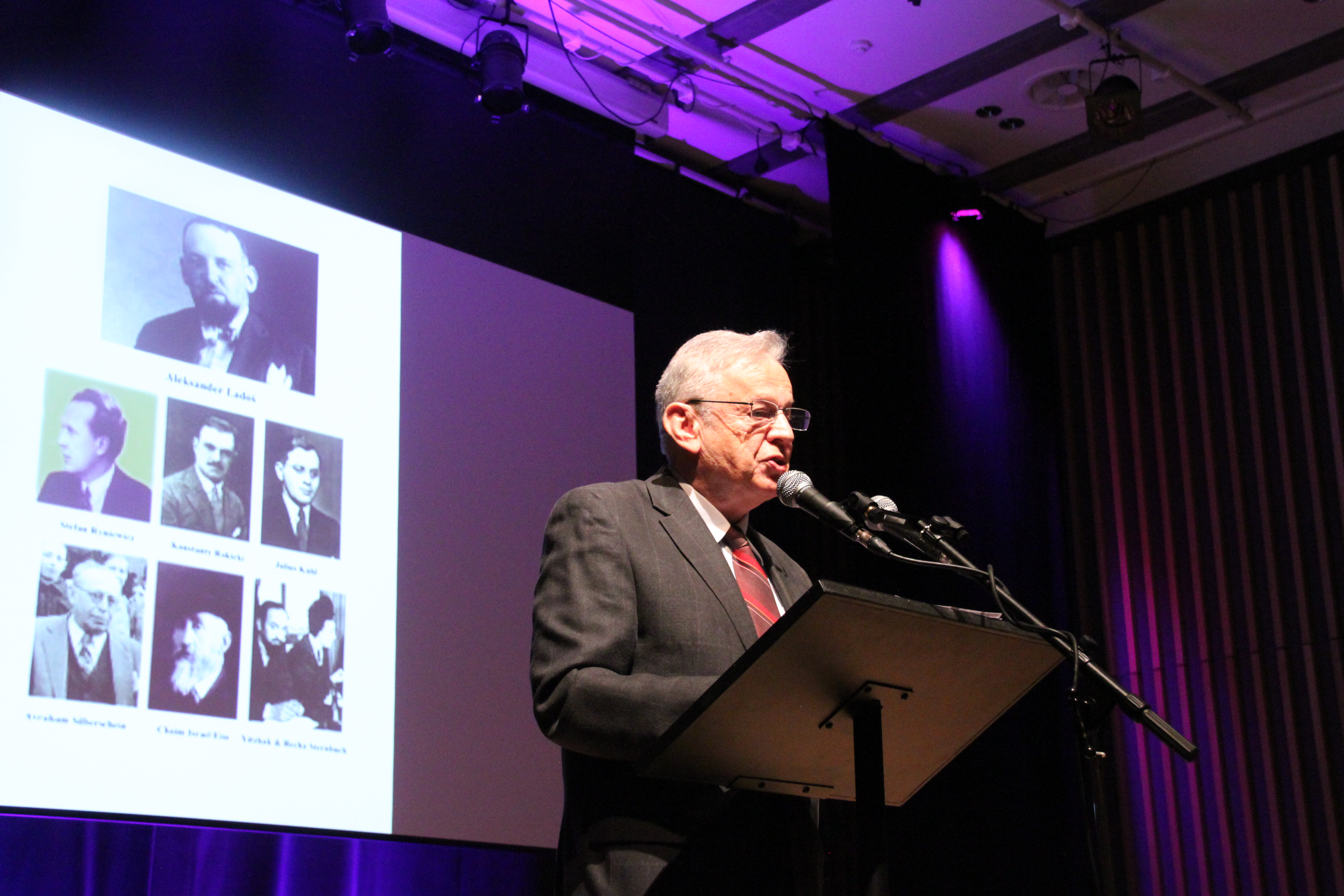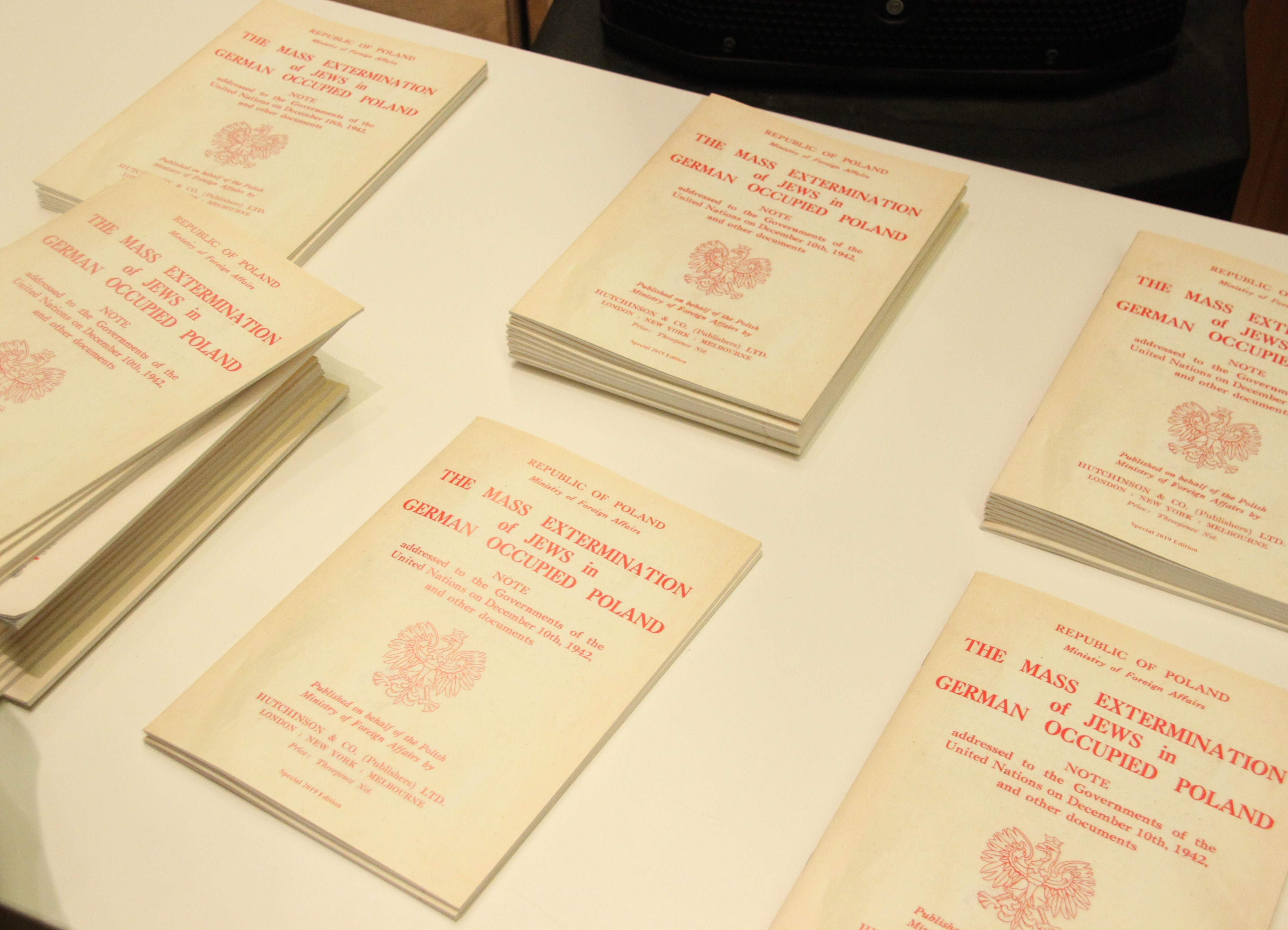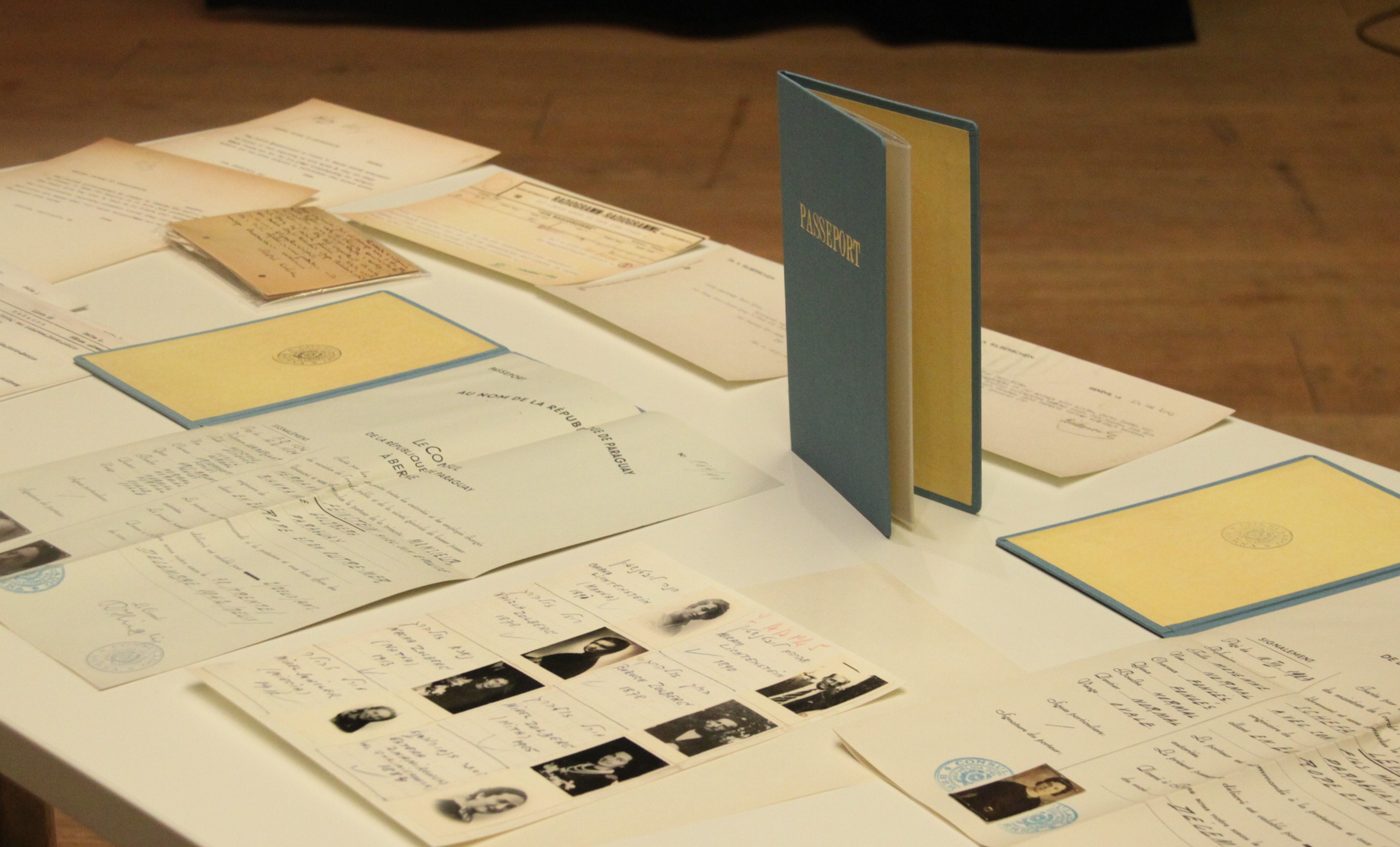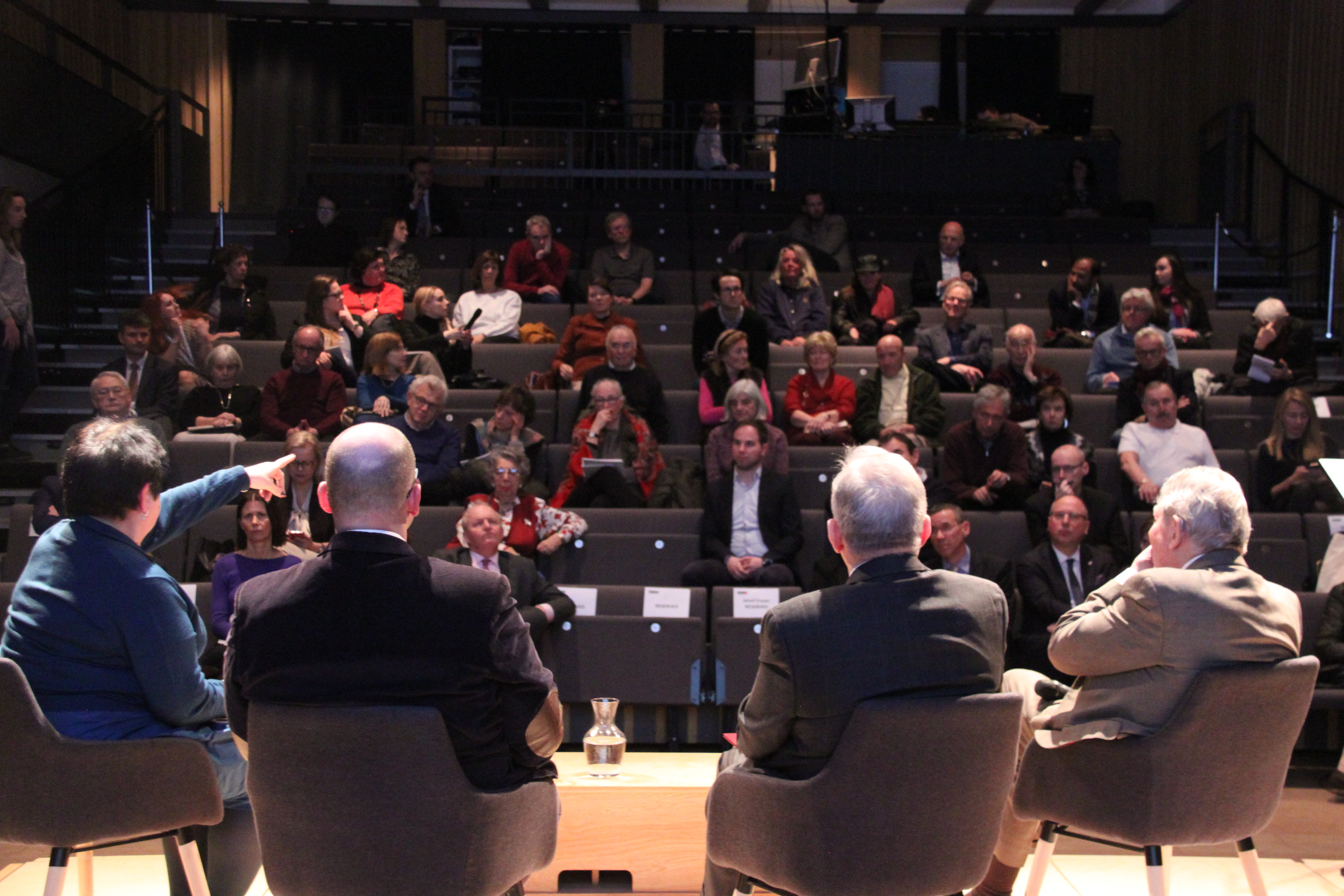Role of Poland’s Government-in-Exile in helping Jews during the Holocaust discussed at JW3
20.01.2020
The role of Poland’s Government-in-Exile in helping Jewish people during the Holocaust was the focus of a panel discussion with renowned experts at the Jewish community centre JW3 in London, which took place on Monday, 20 January 2020.

The discussion, organised by JW3 with the support of the Polish Embassy in London to mark the 80th anniversary of the formation of the government-in-exile, focused on the Polish efforts to inform the world about the Holocaust and to provide Jews with fake Latin American passports by the Bernese Group of Polish and Jewish diplomats and activists.
Taking part in the discussion, chaired by award-winning journalist Jenni Frazer, were former Director (1984-2007) of Yad Vashem’s Department of the Righteous Dr Mordecai Paldiel, Prof Antony Polonsky, Holocaust studies scholar of Brandeis University, and Director of the Pilecki Institute Dr Wojciech Kozłowski. It was accompanied by Pilecki Institute's facsimiles of documents from the Eiss Archive of memorabilia documenting the rescue by Polish diplomats of Jews threatened by the Holocaust during the Second World War.
During the discussion, Dr Paldiel revealed that last week he had written a detailed report about the leader of the Bernese Group, former Polish ambassador to Switzerland Aleksander Ładoś, and his deputy Stefan Ryniewicz to the committee granting the titles of the Righteous Among the Nations, asking it to consider awarding them the title. Before the discussion, he also outlined the actions of the Bernese Group during a lecture.
Opening the event, Ambassador of Poland Arkady Rzegocki said: “It is an honour for me to stand here and speak of the selfless acts of a government which, despite being forced into exile and operating from foreign soil, through its well-connected channels and network of emissaries managed to bring aid and hope to those suffering and provided priceless intelligence about the Holocaust to the free world.“ He also presented a special Polish Embassy reprint of Raczyński's Note, the first official document informing the Western public about the Holocaust in German-occupied Poland, which informed the 17 December 1942 Joint Declaration by Members of the United Nations.
Among the guests present were Ambassador of Israel Mark Regev, Holocaust survivors, and historians.
Poland’s Government-in-Exile was set up in France on 30 September 1939 after President Ignacy Mościcki handed over power to the first President-in-Exile, Władysław Raczkiewicz. After the fall of France in June 1940, the government-in-exile relocated to London, with the Polish Embassy in 47 Portland Place becoming its headquarters.
The government’s aid to Jews during the Holocaust took numerous forms and occurred in many countries. Its activities included:
- informing the world of the atrocities taking place in occupied Poland through such efforts as Jan Karski’s and Witold Pilecki’s first-hand accounts from ghettos and concentration camps, and the Ministry of Foreign Affairs issuing the 1942 report The Mass Extermination of Jews in German Occupied Poland, which contained Raczyński’s Note
- issuing fake identification documents. Members of the Polish Legation in Bern worked as part of the Bernese Group to produce fake Latin American passports, attempting to rescue 8,000-10,000 Jews from the Holocaust, while Polish delegate to Hungary Henryk Sławik helped save more than 30,000 Polish refugees, including 5,000 Jews, by also providing them with counterfeit passports
- obtaining transit and asylum visas in Japan and Shanghai. Polish Ambassador to Japan Tadeusz Romer obtained the visas for 2,000 Jewish refugees from Poland and Lithuania and managed all of the refugee care activities after setting up the Polish Committee to Aid War Victims in Tokyo. Later, as foreign minister, he managed to obtain recognition from some Latin American countries for the documents issued by the Bernese Group
- providing Jewish people with food, medical care, money and false identification documents as well as helping them hide. Żegota, the Polish Council to Aid Jews, aided up to 60,000 Jews, about half of the Jews who survived the Holocaust in occupied Poland, through such acts.
Polish Embassy UK Press Office



